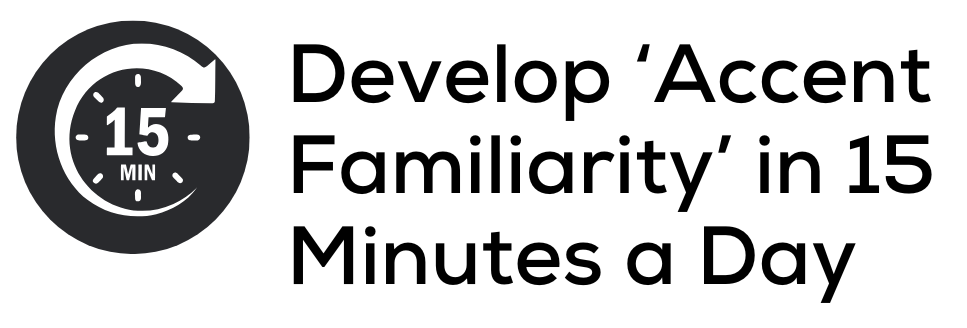I feel overwhelmed trying to connect with colleagues from diverse backgrounds and accents.

Every time I struggle to understand or make myself understood, it shakes my confidence. How can I overcome this and build authentic, meaningful connections with my team?”
If you’ve ever felt the frustration of missing key parts of a conversation—words slipping past, leaving you unsure—it’s not just the content you miss. It’s the growing hesitation, the shrinking confidence, and the self-doubt that quietly builds within you.
When communication barriers emerge because of accents or differing styles, it can feel isolating. The question creeps in—
“Am I not capable enough?” But here’s the reality: this experience is not a reflection of your competence. It’s simply a shared human challenge in today’s increasingly diverse professional world.
Now imagine if this very challenge could be transformed into one of your strongest assets. With intentional effort, you can turn these moments of disconnect into opportunities for growth—building stronger, more authentic relationships than you thought possible. Let’s walk through how you can reframe this into an advantage.
Practical Steps to Turn This Challenge into Strength:
With remote work and virtual meetings becoming the norm, technology can quietly become your strongest ally. Tools like Zoom and Microsoft Teams offer transcription features that can reshape the way you engage in conversations.
- Here’s a simple way to introduce this into your meetings:
“Would it be alright if I record this session? I want to ensure I capture every detail accurately so that nothing slips through the cracks.” - Use transcripts post-meeting to match words with accents, tone, and patterns. This reinforces your learning and helps bridge the comprehension gap, often faster than you expect.

Learning to navigate accents is like tuning your ear to a new instrument. The key is consistency—just 15 minutes a day can create surprising results.
- Explore media in your colleagues' accents— listen to podcasts, watch movies, or even stand-up comedy. The goal isn’t perfection but comfort. With time, accents that once felt challenging will begin to feel second nature.
- Listen to recorded meetings while reading the transcript simultaneously.
- Pause, rewind, and focus on sections that feel tricky.
- This layered approach solidifies understanding and accelerates your ability to connect. By the next meeting, you’ll notice a tangible shift in both confidence and clarity.

Sometimes, it’s not just the words—it’s how they’re delivered. Pay attention to tone, pace, and non-verbal cues like facial expressions and gestures. When in doubt, paraphrase and confirm:
- “Just to ensure I’ve understood this correctly, you mean…”
This not only reduces miscommunication but signals to your colleagues that you are fully engaged and value clarity.

Connection goes beyond work tasks. Take an active interest in your colleagues' backgrounds and stories. Small gestures—like asking about holidays, traditions, or personal interests—foster trust. The stronger the relationship, the more natural communication becomes, even across language barriers.
Rather than viewing accents as a challenge, let curiosity take the lead. When something feels unfamiliar, ask about it:
- “That’s an interesting phrase—where does it come from?”
This not only deepens your understanding but reinforces your respect for their uniqueness, creating rapport and connection.
The Bigger Picture:
The discomfort you experience today is not a dead end—it’s an entry point. Through these strategies, what once felt like a setback can position you as someone who thrives in diverse environments.
You’re not just learning to decode accents—you’re mastering the art of inclusive communication, empathy, and human connection.
In the end, this isn’t about hearing better. It’s about being heard and ensuring others feel heard in return. And that skill? It will set you apart in any room, in any career path.



